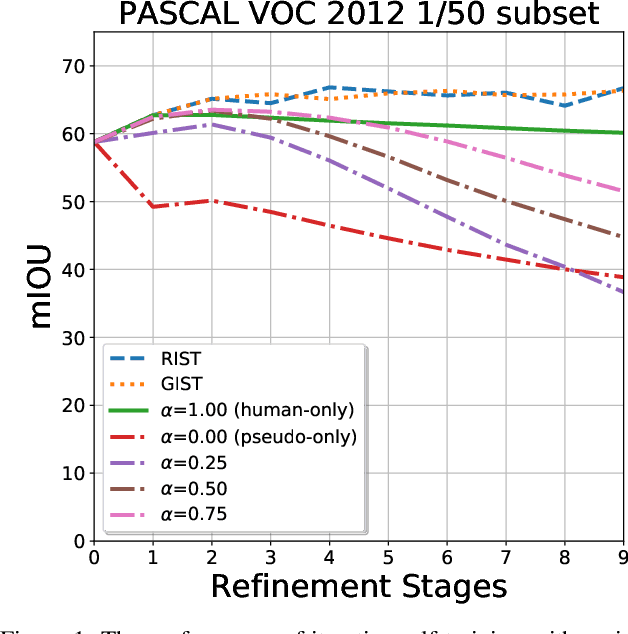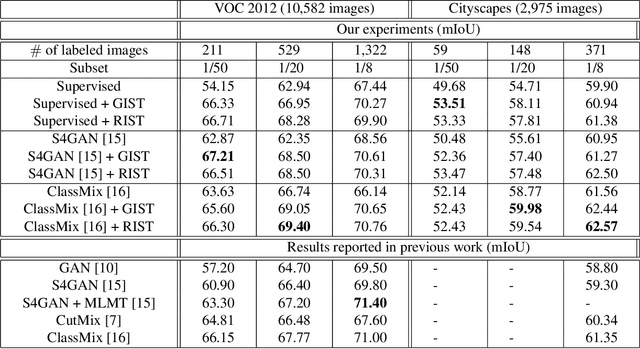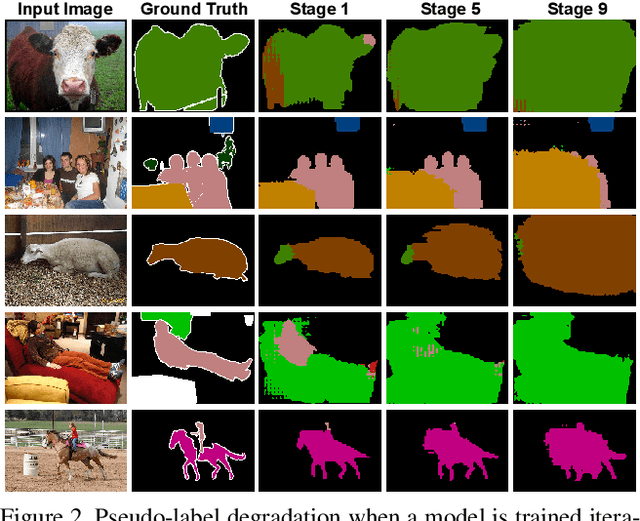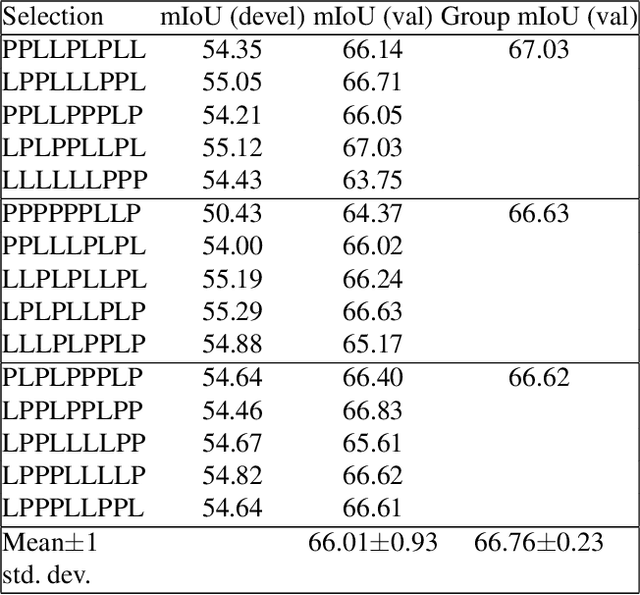The GIST and RIST of Iterative Self-Training for Semi-Supervised Segmentation
Paper and Code
Mar 31, 2021



We consider the task of semi-supervised semantic segmentation, where we aim to produce pixel-wise semantic object masks given only a small number of human-labeled training examples. We focus on iterative self-training methods in which we explore the behavior of self-training over multiple refinement stages. We show that iterative self-training leads to performance degradation if done naively with a fixed ratio of human-labeled to pseudo-labeled training examples. We propose Greedy Iterative Self-Training (GIST) and Random Iterative Self-Training (RIST) strategies that alternate between training on either human-labeled data or pseudo-labeled data at each refinement stage, resulting in a performance boost rather than degradation. We further show that GIST and RIST can be combined with existing SOTA methods to boost performance, yielding new SOTA results in Pascal VOC 2012 and Cityscapes dataset across five out of six subsets.
 Add to Chrome
Add to Chrome Add to Firefox
Add to Firefox Add to Edge
Add to Edge